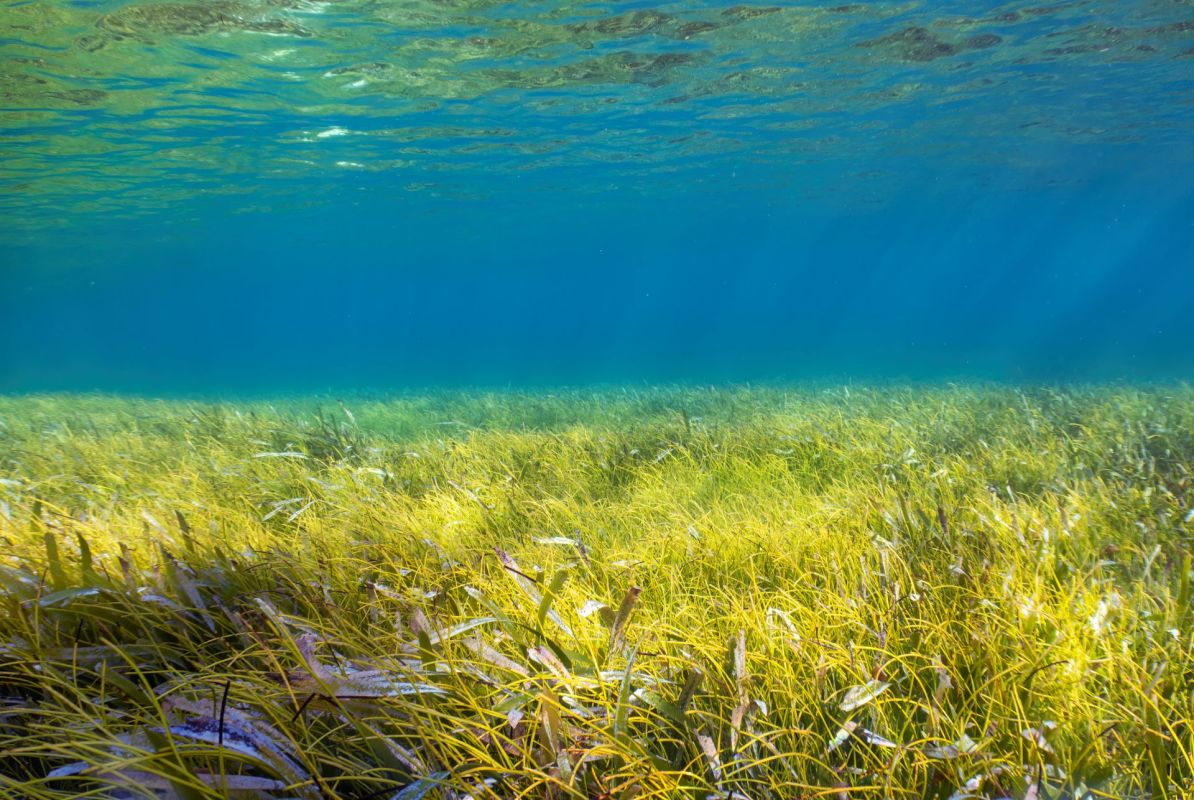One of humanity's greatest hopes for fighting pollution might be hiding just beneath the ocean's surface.
Recent research out of the University of Michigan showed that seagrass meadows in the Caribbean could potentially provide a major service to society — in the form of carbon storage.
Carbon pollution, which comes from human activities like product manufacturing and driving gas-guzzling vehicles, is a top cause of rising global temperatures.
Carbon capturing and storage simply refers to processes by which carbon is removed from the atmosphere and stashed away somewhere where it can't be released back into the atmosphere.
Finding ways to store carbon is an important part of slowing and reversing the Earth's trend of rising temperatures, and there are even entire companies dedicated to this process. However, seagrass does it naturally, mostly by slowing ocean waves to enhance sediment accumulation, stabilizing sediments, and trapping carbon-carrying organic matter.
Experts estimate that seagrass provides roughly $88.3 billion worth of carbon storage services every year. Overall, seagrass provides an estimated $255 billion in total benefits to society annually.
The fact that plants can act as carbon capturers and storage locations is not new information. We know soil-based plants, like trees, offer this service via photosynthesis. This new study from the University of Michigan, however, is one of the first to put a monetary value on just how important it is to conserve seagrass specifically.
This study also highlighted a new opportunity for companies to do their part to fight increasing temperatures by purchasing or earning "blue carbon" credits, which refers to carbon stored on the coasts and in the ocean.
Carbon offsets — carbon-storing efforts that companies can purchase to make up for their polluting practices — have been a controversial practice, and many have been proven to have no effect on overall pollution levels. However, this natural alternative presents an option that may work better.
"They [the seagrass meadows] represent an important burgeoning market for blue carbon," marine ecologist and study senior author Jacob Allgeier said, according to Phys.org.
Join our free newsletter for cool news and actionable info that makes it easy to help yourself while helping the planet.









